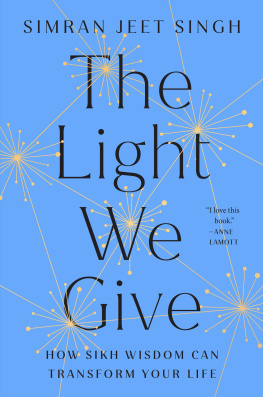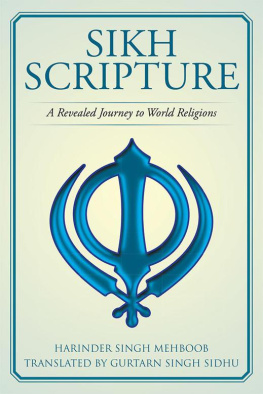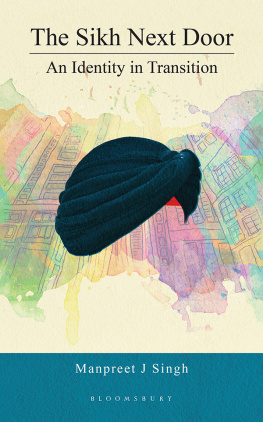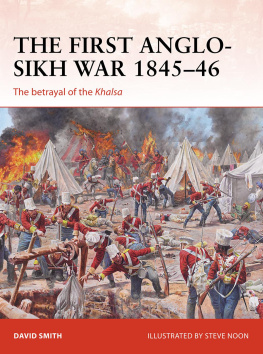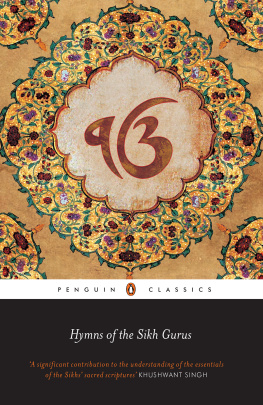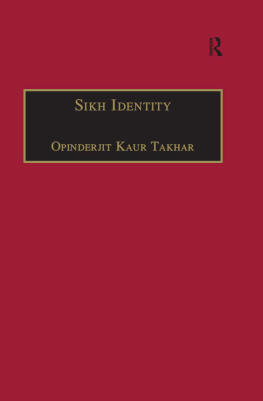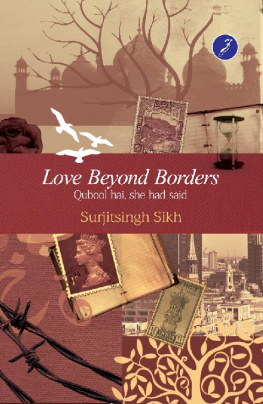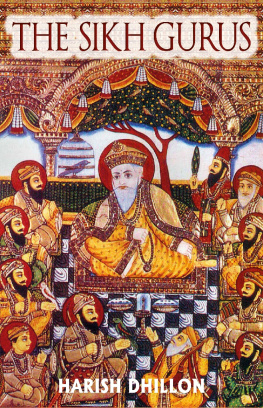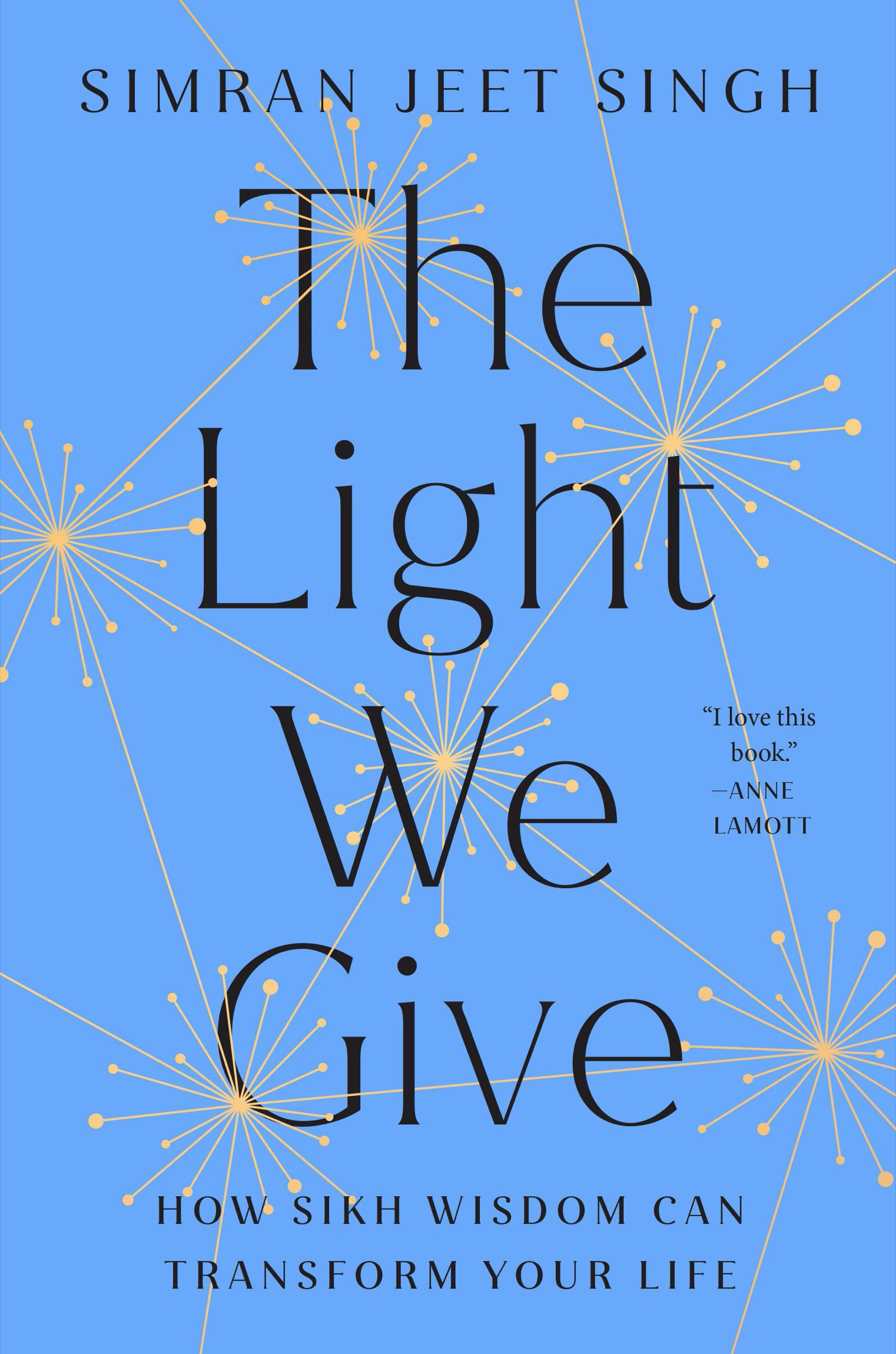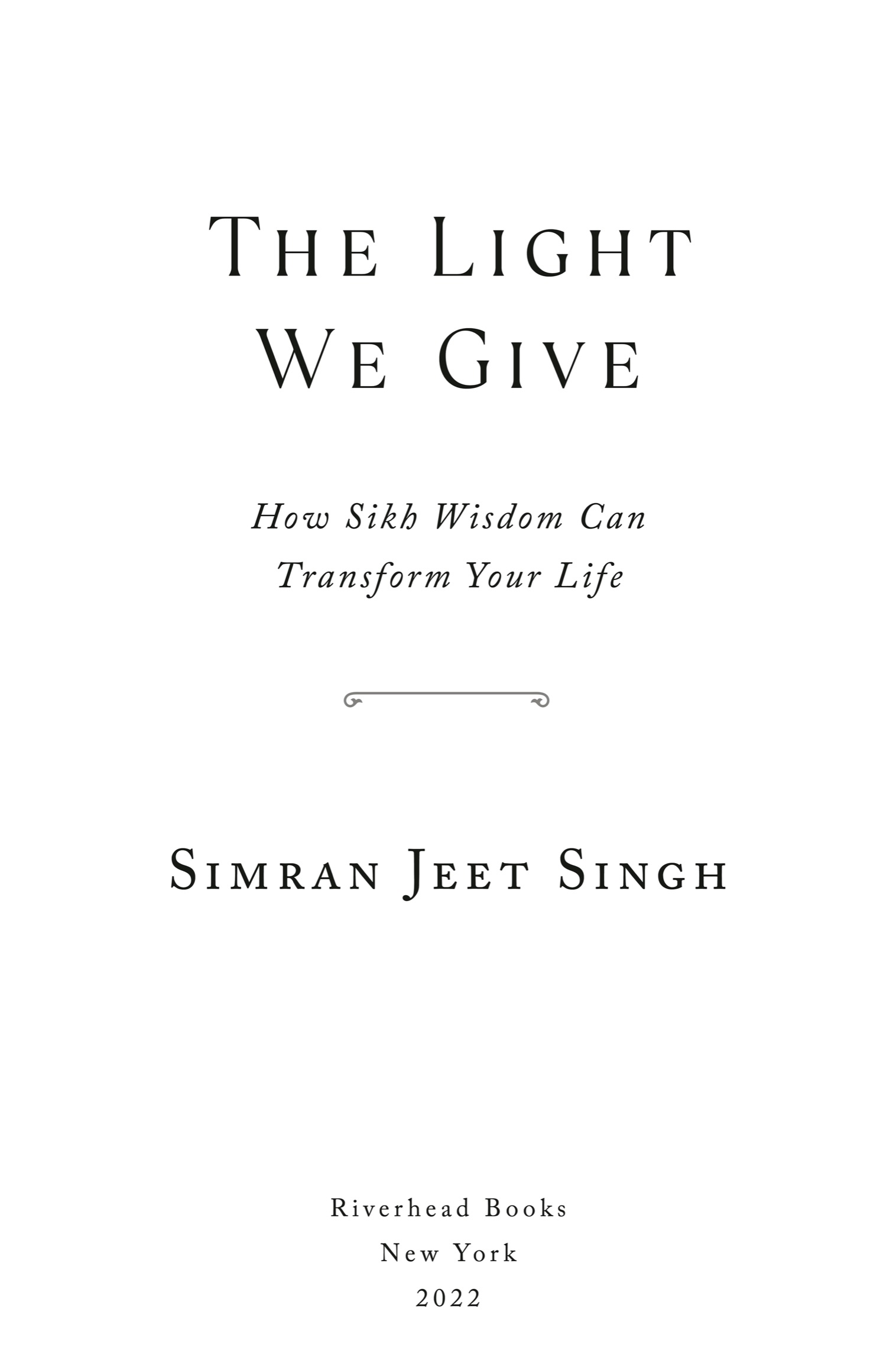Prologue
I was a teenager when I learned how much people spent on haircutsand I was floored. I thought that maybe the Sikh gurus were on to something with the whole no-cutting-hair thing. Think of the money my family saved.
I mentioned it, half-jokingly, to my soccer teammate Anton, who replied, Yeah, but think about how much you spend on shampoo and conditioner.
We all see the world from our own eyes.
Ever since I was a boy, Ive tried to understand how my life experiences might differ from those of my friends and neighbors. As I grew older, I sought to make meaning of another kind of difference. I viewed myself a certain way, but people perceived me differently. How would I reconcile these two understandings? We all go through this process on our own journeys. Perhaps this is what it means to mature.
By virtue of who I am, a Sikh man in modern America who was born and raised in Texas, I experienced the aftermath of 9/11 as a pivotal moment in my life. Your experience may be similar to mine; you might have been more directly affected by it than I was; you might have seen it from a distance, or from the corners of your eyes, or even from memories passed down to you.
We have shared experiences, yet we experience them differently.
I have grown immensely by opening myself up to the world. Rather than being judgmental about different perspectives and ways of living, I am now intrigued and curious. Why do you think so? What experiences inform that outlook? Taking this approach reveals that theres more to us than the attributes we are born with or our experiences at the surface. We all have it in us to journey together to our shared interior, to the inner struggles that make us human and that we hold in common. Traveling together can help us make meaningof ourselves and our worldand can help us find answers to questions we never even thought to ask.
Besides, I prefer to travel with support and company. Life is so much more enjoyable when we feel connected and move with purpose.
If we can learn to see the humanity in ourselves and in one another, we can mitigate so much of the self-inflicted pain we feel daily. Its a simple upgrade, really, and its intuitive, too. Even my two young daughters understand: Being kind to others makes them happy and makes you happier, too.
(This is what I tell them every morning as I try to convince them to let me sleep in.)
This way of life is not a cure-all or a ready-made solution for all our problems. There will always be things beyond our control. But calming our inner tumult is within our control. To paraphrase Guru Nanak, If we can conquer our minds, we can conquer the world.
All this might make sense in theory, but finding inner peace is hard work. It takes time and commitment and effort, and dont we all have enough to do already? Id also love to be more generous and caring and compassionate, but the truth is that dealing with people can be annoying, even the ones we love.
And as we look around at our world on fire, there are plenty of reasons for us to be frustrated, outraged, and angry. The negativity that surrounds us can be overpowering, turning simple acts like turning on the news or checking our social media into fraught, anxiety-provoking experiences. In the words of civil rights leader Fannie Lou Hamer, were sick and tired of being sick and tired.
So how do we go on? Heres some real-life inspiration.
Jaswant Singh Khalra wasnt always a human rights hero.
In the 1980s, Khalra was a director in a cooperative farmers bank in Amritsar, Punjab, when two of his colleagues suddenly went missing. Khalra began looking for them, and his search led to a horrifying discovery: evidence that the Punjab police had illegally killed and cremated thousands of Sikhs. Worse still, Khalra would soon realize that the files hed first unearthed represented just a fraction of the large-scale persecution targeting the Sikh community. Despite threats to his life from government and police authorities, Khalra continued to investigate for years, and he ultimately estimated approximately 25,000 extrajudicial killings and illegal cremations of Sikhs in the state of Punjab.
In 1995, Khalra disappeared like the thousands before him, never to be seen again. Witnesses implicated the police in his murder, and it took ten years for them to be held accountable. On November 18, 2005, six Punjab police officials were convicted for Khalras abduction and murder.
Just before his disappearance, Khalra visited Canada. He planned to tell the world about the severity of human rights atrocities in India. Some of his supporters, worried about the increasing threats to his life, urged Khalra to stay in Canada as a political asylee. With characteristic grace and gentleness, Khalra responded that a truly wise person knows that truth and justice are greater than fear. From the stage of a gurdwara in Ontario, in his last speech before his own abduction, Khalra shared a Punjabi folktale about a lantern that insisted on challenging the darkness, no matter the consequences:

